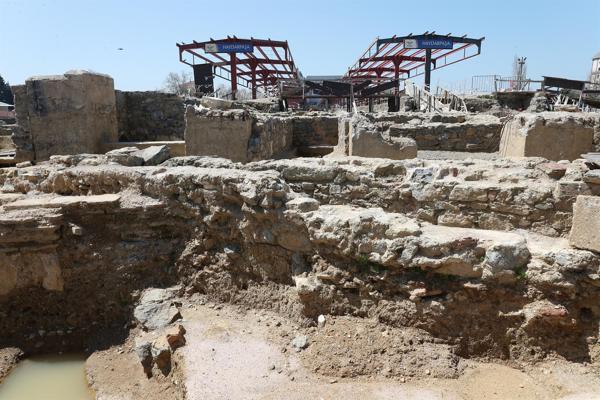Archaeologists find mysterious structure in ‘Land of the Blind’
ISTANBUL


Turkish archaeologists have uncovered the ruins of a structure, estimated to have been built in the 3rd century B.C., during an excavation in Istanbul’s Haydarpaşa, a historic train station on the Asian side.
The structure, discovered at the station’s waiting platforms, covers a large area and is apsidal in form, a feature common in ancient churches.
These remains give significant hints about Khalkedon, the ancient ‘Land of the Blind’ from some 2,500 years ago.
While the site’s architecture does not lend any clues to its function, archaeologists believe it was considered sacred.
However, they also estimate that the building is the oldest architectural structure unearthed in these excavations.
Speaking to Demirören News Agency, Mehmet Ali Polat, Chief archaeologist of the Haydarpaşa excavation, gave information about the field works and finds.
Remains were found in an area of 350,000 square meters, including the area surrounding the station, said Polat, adding that small finds, pots, coins dating from around 6 B.C. to the modern-day were found, all from various eras.
“This is the northwestern port of the ancient city of Khalkedon, a large structure that could be a warehouse. On the other side of the road, we see a group of buildings that could be a small summer palace,” Polat said.
The Haydarpaşa Train Station was shut down for restorations, in which ancient artifacts were unearthed, and since then, Haydarpaşa has been an excavation site.
The digs, started in 2018 by Turkey’s Culture and Tourism Ministry and Istanbul Archeological Museums, have been done with the utmost care for the last three years.
Digs revealing historical structures shed light on the deep roots of Anatolia and Istanbul, a cradle of civilizations.
